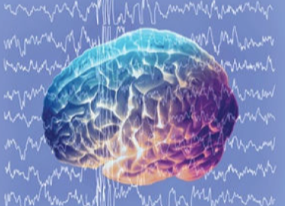
Neuro breakthrough uncovers potential pathway for curbing addiction
Most neurologic research in the addiction field focuses on neurons and how their receptors are blocked or activated by drug use. However, researchers at University of Buffalo noticed some interesting data which suggested that glial cells may play a role in regulating addiction. Glial cells act to mylenate the connections between neurons and can be thought of as the “glue” that binds the neurons together.
As reported by University of Buffalo, researchers there have made an important breakthrough in identifying how glial cells help re-wire the brain to fight off addiction.
By providing new insights into how addiction changes the brain, the research could lead to novel approaches to treatments and potential new targets besides neurons.
“Most therapies have focused on the blocking or activating of receptors that bind drugs like heroin,” explained David Dietz, PhD, senior author of the paper and associate professor in the Department of Pharmacology and Toxicology in the Jacobs School of Medicine and Biomedical Sciences at UB. “While that approach may be effective in the short-term, it doesn’t get to the fundamental problem of what is addiction and how to prevent it, as well as prevent relapse.”
In the study, researchers found that when two genes, SOX10 or BRG1, were deliberately overexpressed, the animals’ motivation to take the drug was reduced.
“To our surprise, it reduced their drug-taking behavior,” said Dietz. “It looks like the brain is trying to reconnect and possibly readapt myelin to normalize function, although that would need to be directly tested in future studies.”
One way to think of what may be happening, he explained, is to imagine that the brain is responding to exposure to drugs of abuse by attempting to reconnect with the brain’s other reward centers.
“As with any part of the body that sustains an insult, it seems that the addicted brain is trying to fix what went wrong,” he said. “Our hypothesis is that after exposure to heroin, the brain starts to upregulate OPCs in an attempt to fix the altered connectivity that occurs in the addicted states. It is possible that when we facilitated OPCs, we may have reversed some of the disconnect between the prefrontal cortex and the brain’s other reward regions.”
Are you or a loved one struggling with addiction, lying to yourself and others? Don’t wait any longer to ask for help. In today’s environment, you never know when your next dose will be your last!
Our Neuro Rehabilitation approach helps address the root causes of addiction once and for all.
To read more about the latest addiction research from University of Buffalo, please visit UBMD.com.






